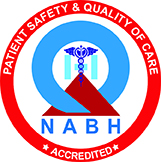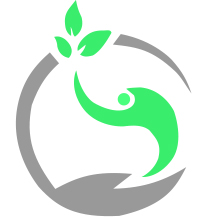This year, North India has witnessed one of the wettest monsoon seasons in recent history. Rainfall has already crossed a 37% surplus, making it the second-wettest season in the last 50 years. Unfortunately, these record rains have caused floods, landslides, and traffic disruptions, and many families have suffered losses.
At Silver Streak Multispeciality Hospital, our thoughts are with those affected. While the rains bring relief from scorching summers, they also create perfect conditions for infections and diseases to spread. With stagnant water, poor sanitation, and high humidity, monsoon illnesses peak sharply during this season.
Why Monsoon Brings Health Risks
The monsoon season not only cools temperatures but also creates an environment where bacteria, viruses, and mosquitoes thrive. Overcrowding in cities, waterlogging, and unhygienic food handling further worsen the situation.
This is why awareness and prevention are as important as treatment.
Common Monsoon Illnesses
During and after the monsoon, hospitals see a sharp rise in seasonal diseases. Some of the most common include:
1. Dengue & Malaria
- Caused by mosquito breeding in stagnant water.
- Symptoms: High fever, severe headache, body aches, nausea, and rashes.
- Complications: In some cases, dengue can progress to hemorrhagic fever or shock, requiring hospitalization.
2. Chikungunya
- Another mosquito-borne illness.
- Symptoms: Intense joint pain, fever, fatigue, and skin rashes.
- Recovery: Pain may last for weeks, affecting daily activities.
3. Waterborne Diseases
- Examples: Typhoid, cholera, hepatitis A and E.
- Causes: Consumption of contaminated water or food.
- Symptoms: Prolonged fever, abdominal pain, vomiting, diarrhea, and jaundice.
4. Respiratory Infections
- Includes colds, influenza, bronchitis, and pneumonia.
- High humidity weakens immunity and spreads infections faster.
- Elderly people, children, and those with asthma are more vulnerable.
5. Gastrointestinal Disorders
- Food poisoning, diarrhea, and indigestion rise due to contaminated street food and stored leftovers.
- Improper refrigeration and poor hygiene add to the risk.
How to Stay Healthy During Monsoon
The good news: most monsoon illnesses can be prevented with simple precautions.
1. Mosquito Control
- Do not allow water to stagnate near your homes or offices.
- Use mosquito nets and repellents.
- Wear full-sleeved clothes in the evening.
2. Safe Drinking Water
- Always drink boiled or filtered water.
- Avoid roadside juices and flavored drinks.
- Carry your own bottle when traveling.
3. Food Hygiene
- Prefer home-cooked meals during this season.
- Avoid cut fruits, raw salads from street vendors, and oily food.
- Wash vegetables thoroughly before cooking.
4. Personal Hygiene
- Wash hands with soap frequently, especially before meals.
- Encourage children to practice hand hygiene.
- Take a warm shower if exposed to floodwaters.
5. Boost Immunity
- Add citrus fruits, green leafy vegetables, and proteins to your diet.
- Drink herbal teas like ginger or tulsi for natural immunity.
- Sleep well and stay hydrated.
6. Flood Safety Precautions
- Avoid walking in waterlogged areas to prevent skin infections and leptospirosis.
- If you must, wear protective footwear.
- Keep first-aid essentials and emergency contacts handy.
When to See a Doctor
Seek immediate medical help if you notice:
- High fever that does not subside with basic medication
- Severe abdominal pain, vomiting, or diarrhea
- Yellowing of eyes or skin (jaundice)
- Shortness of breath or chest discomfort
- Extreme weakness or confusion
Early diagnosis and timely treatment save lives.
Silver Streak Hospital’s Monsoon Care
At Silver Streak Multispeciality Hospital, we are prepared to handle a wide range of monsoon-related illnesses.
- Advanced Diagnostics – Fast and accurate testing for dengue, malaria, typhoid, and hepatitis.
- 24×7 Emergency & Critical Care – Immediate support for severe complications.
- Internal Medicine & Pediatrics Teams – Coordinated care for both adults and children.
- ICU & Intensive Support – For serious infections requiring monitoring.
- Preventive Counseling – Guidance on diet, hygiene, and lifestyle changes during monsoon.
Key Takeaways
- Monsoon brings relief but also increases the risk of infectious diseases.
- Prevention is better than cure—follow hygiene, safe food, and mosquito control.
- Stay alert for warning signs like high fever, jaundice, or breathlessness.
- Consult a doctor immediately if symptoms worsen.
- Silver Streak Hospital is equipped with the expertise and facilities to treat monsoon illnesses effectively.
Final Words
The monsoon season is a blessing for farmers and nature, but it can also turn dangerous if we ignore basic precautions. By taking preventive steps, seeking timely medical advice, and spreading awareness, we can enjoy the rains without falling ill.
At Silver Streak Hospital, our mission is not just to treat patients but to empower communities with knowledge. If you or your family members experience symptoms like persistent fever, vomiting, or dehydration, it’s important to consult our expert physicians for adults or pediatricians for children. You can book a consultation online or visit us directly for personalized care.
Together, let us ensure this monsoon season remains safe, healthy, and joyful for all.


